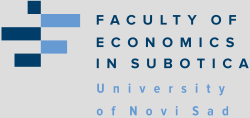Sustainability of Corporate Tax Revenues in European OECD Economies Eatr Cuts and FDI Inflow
DOI:
https://doi.org/10.46541/978-86-7233-428-9_390Keywords:
EATR, Corporate tax revenues, European OECD economies, PMG model, DCCE modelAbstract
Base erosion and profit shifting (BEPS) is an endeavor to prevent increased profit shifting as a result of global tax competitiveness. However, there is still a scarcity of thorough analyses that quantify BEPS effects on the economy, tax revenues, employment, and welfare. This paper's main objective is to empirically evaluate the direct effect of EATR changes and indirect effect through FDI on the corporate tax revenue (CTR) in European OECD countries using available empirical data in the period 1998–2021. The paper analyses volume of capital/profit shifts which reflect in tax revenues loses in some economies due to heterogenous tax policies within the EU. Using the (Pooled) Mean Group model a significant positive long-term relationship was confirmed between the CTR and the EATR; and between CTR and FDI. The Dynamic Common Correlated Effects (DCCE) model was implemented as a robustness check, and it confirms results revealed with PMG model in short-run. The findings show that on average in European OCED economies achieving tax competition leads to tax revenue loss. On the other hand, FDI increase creates positive effect on CTR. Furthermore, results show that completely different strategies exist in emerging vs developed European OECD economies – in terms of attracting FDI vs maintaining sustainable the level of tax revenues.


